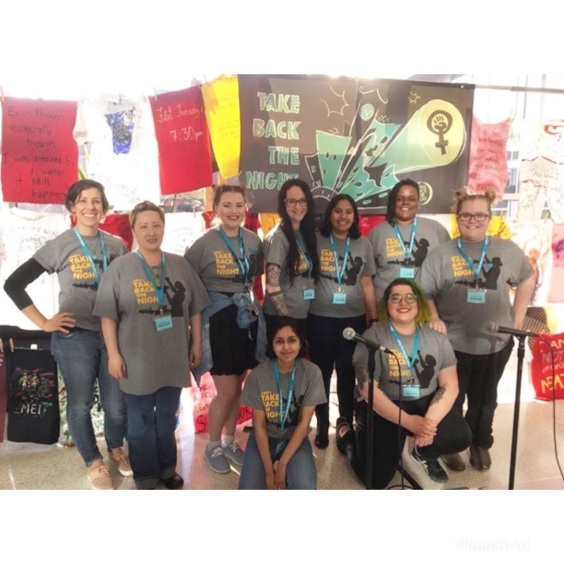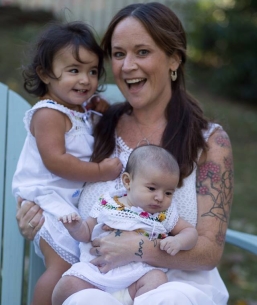
A reflection by student staff member, Marie, on her personal journey to becoming a feminist and beginning the process of raising her own daughters as feminists.
T
Three years ago, my life changed drastically. Three years ago this week, I became a mother. Besides the birth of my second daughter (almost 15 months later), this was my single most amazing accomplishment of my entire life. Around the same time, almost exactly three years ago, I made the decision to take charge of my life. I decided to go back to school to finish my undergraduate degree. I was determined to be someone, to make something out of my life and returning to school was how I wanted to do that. I was set on becoming the kind of mother that my children could look up to, the kind of person that they would want to emulate.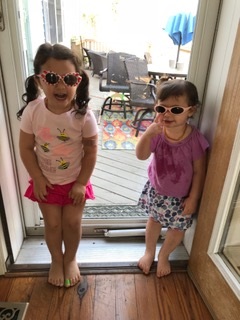
When I decided to return to school, I had a plan. Not only did I have a plan, but I had a partner, and someone who was willing to share the financial responsibility of being a single income family for a period of time. I was nervous, but I was ready. However, as soon as my plan started to come into fruition, everything started falling apart. I found myself suddenly: jobless, partner-less, a newly pregnant single mother taking 19 credit hours, and moving back into my parents’ home. This was not the way that I had envisioned my return to college to be.
I tell you this, not for pity, but to show you how a little bit of hard work, “true grit,” and determination go a long way. I came onto this UMBC campus eager to learn, and even more eager to graduate. What I found was, that in between the learning and the pursuit of graduation, I found a lot of “greatness” in between. (add image) I remember clear as day, where I was, (Dr. O’s Human Behavior class), and who I was talking to (Erin), when I first found out about the magical place on campus that would alter my college experience- The Women’s Center. I was told about a program that I had never heard of, called the Returning Women Students Scholars and Affiliates Program. Erin was currently a member of the program, and she persuaded me to look into the scholarship that is offered to “non-traditional students over the age of 25” and to check out the Women’s Center. I didn’t think much of this conversation at the time, but looking back now, I am eternally grateful to Erin for this nudge in the right direction. Not only did this amazing program help me out financially, it helped to secure a place on campus where I finally felt like I belonged.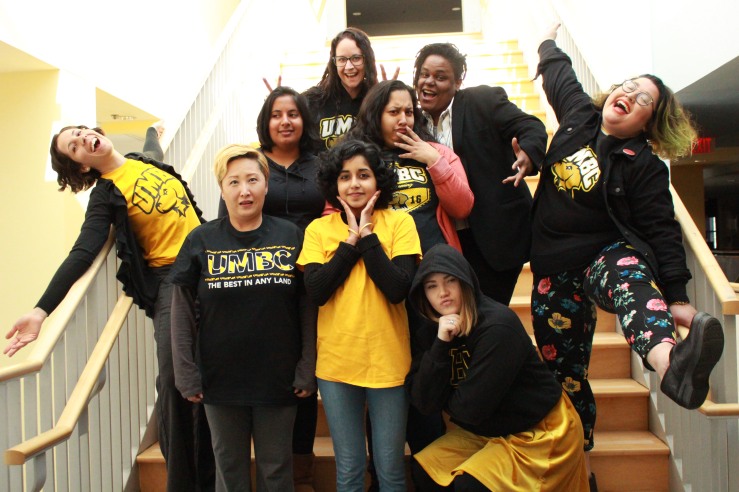
Finding the Women’s Center on campus was somewhat comparable (to me) as finding a hidden treasure chest. Because that’s kind of what it is really like. (When you go visit the Center yourself, you’ll know what I am talking about) Are you interested in Critical Social Justice?!? Well, there’s an entire week devoted to it. Discussion-based programs? Yup, they’ve got those too. Then there is Take Back the Night, which always serves to unite the campus of UMBC together to support the survivors of sexual violence and to protest sexual misconduct of any shape or form. This semester, there are even Pop Culture Pop Up’s to address current issues that are prevalent “today.”
The idea of having an available Women’s Center here on campus got me thinking about the importance of Women’s Centers on college campuses and why they really matter. I spent a little bit of time reading up on the start of campus-based women’s centers in general (the first campus-based center was founded at the University of Minnesota in 1960) and the undeniable need for a place to support and empower women in higher education. I read about how in the late 1960’s and early 1970’s, women began to re-enter into the field of academe. However, at this time, there were no departments or offices that were solely dedicated to women students, and many needs of this population were being unmet. The beginning women centers that were established to promote and support the re-entry of women back into higher education, while at the same time allowed for women to find “like minded others and build a radical, forward-looking community that worked for women’s equity (Devi, 2015).
Additionally, women’s centers were spaces that were open and available to all students, not just a fraction of the campus. This allowed and encouraged participation in these spaces to encompass a broader range of people that collectively share the same ideals, beliefs, and values. The founding centers focused primarily on raising and examining new questions about women’s lives, roles and expectations; helped to grow and develop feminist consciousness, aimed at combating isolation, and developed a sense of community.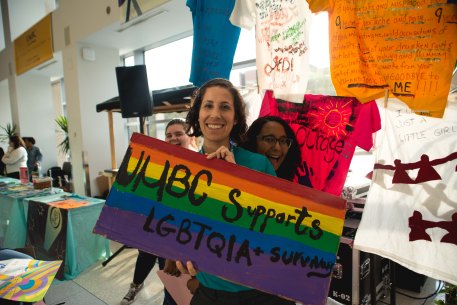
What I found to be a common theme within women’s centers that I was able to research, was the shared common denominator of alternative resources and programming that are readily available and are not necessarily found anywhere else on campus. Information on such topics such as: pamphlets and newsletters about rape crisis intervention; self-defense; coming-out information; lesbian support groups; women of color coalitions; contraceptive options for women; healthcare; feminist and lesbian literature; women’s music; alternative scholarship programming; feminist mythology; and other progressive and unconventional ideas were on display or easily accessible in each center. These spaces also promote expect respectful interactions and conversations between all those who choose to participate in either discussions, or in the spaces in general.
Since the creation of the first women’s center in the 1960s, the evolution of these centers has continued to evolve around the issues of women and gender and to address discrimination and dismantle sexist, racist, homophobic, and transphobic organizational structures. Centers have been able to accomplish these issues by the continuing evolution of programming that includes tackling large scale issues, such as Title IX, salary equity, reproductive rights, violence against women, and issues of equity, diversity and intersectionality within the campus community as well as looking at society as a whole.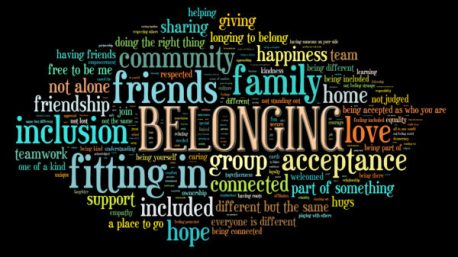
At the Women’s Center at UMBC, there is always something going on. More importantly, there is always someone in the Women’s Center. This small, but cozy, space houses some of the most intellectual conversations, stimulating interactions, learning experiences, and belly laughs that cannot be compared to. The space itself welcomes and promotes all aspects of campus life and “real life” that a women’s center was designed to encompass. The staff is beyond friendly and approachable (I may be a bit biased), and the atmosphere is beyond welcoming. I highly recommend stopping by to say hi, to grab some coffee, or to meet a new friend. Why not, take a chance! That’s what I did, and I walked away with friendships, something that connected me to campus that I had never felt before, and experiences that I will carry with me for the rest of my life.
When I look back at my time spent at UMBC, I am certainly going to remember the superior education that I received. I truly believe that I will excel and flourish as a social worker because of the exceptional professors who guided me through the program. I will also be able to stand up and fight to empower the women and mothers that I encounter with the knowledge that I have gained through the immeasurable teachings from the professors in the Gender and Women’s Studies Program. But what I am going to remember and miss the most, is the place that I call home on campus, and the family that came along with it.
